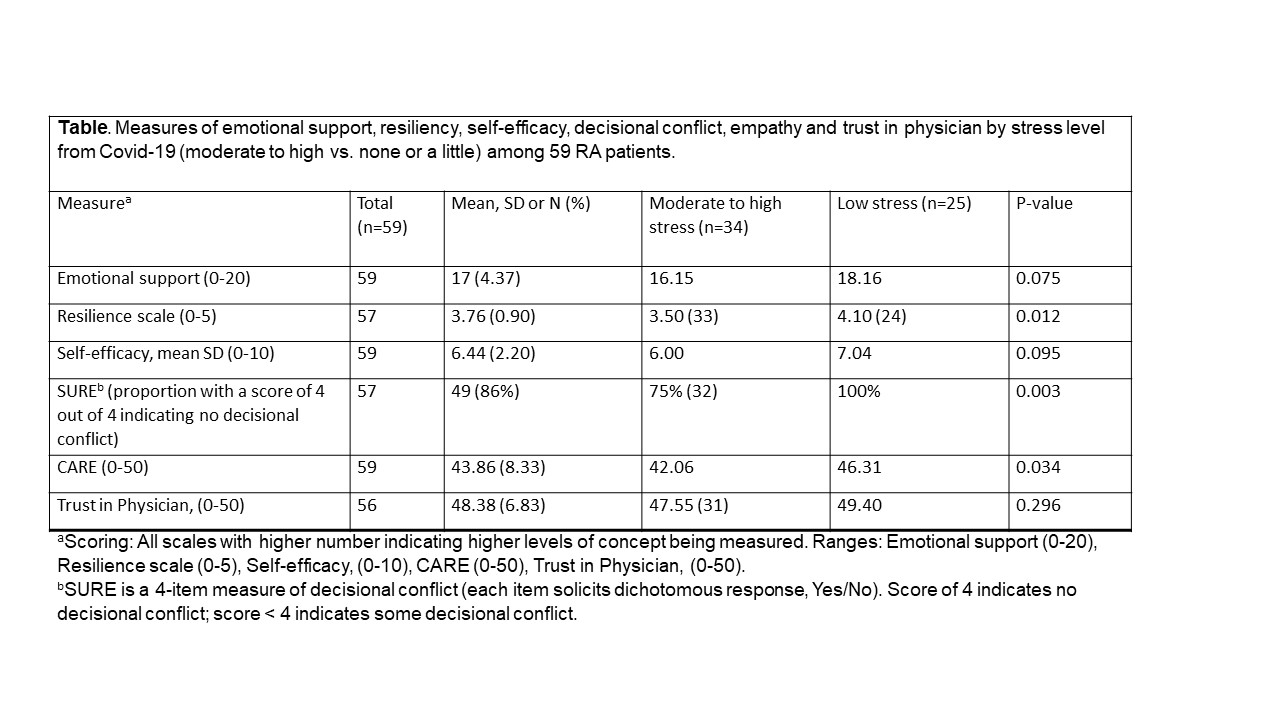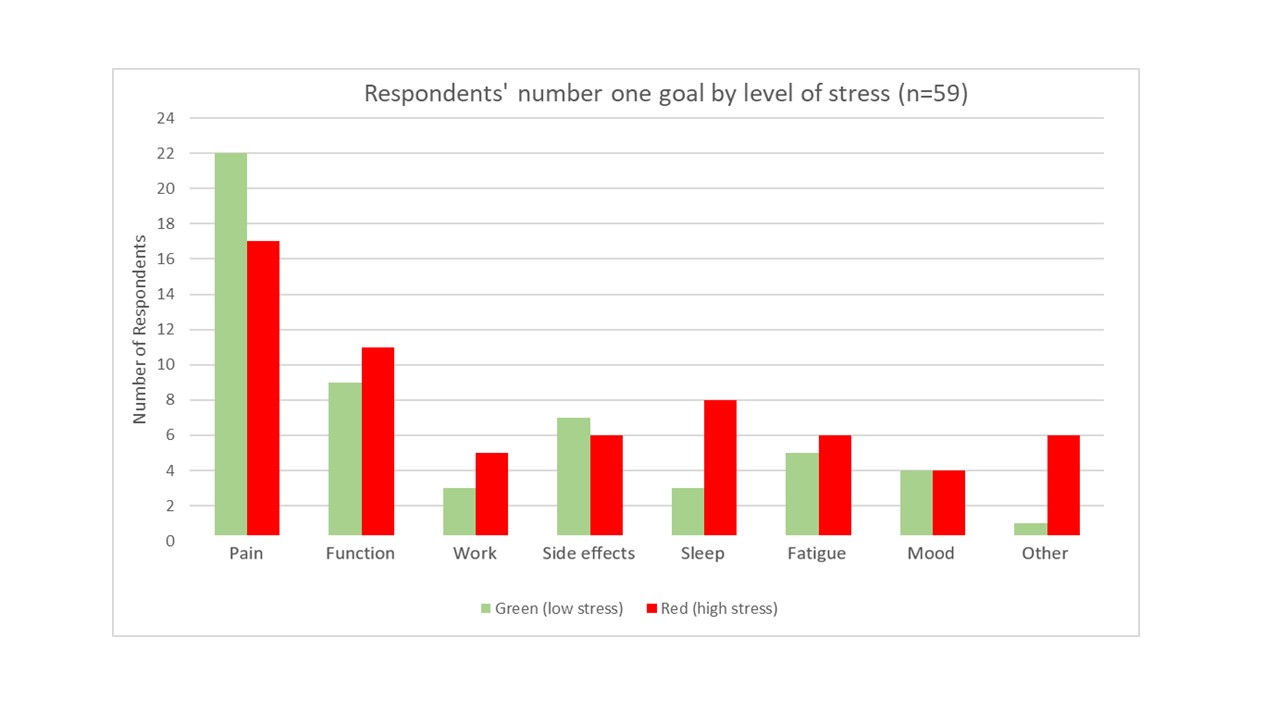Session Information
Date: Tuesday, November 9, 2021
Title: Patient Outcomes, Preferences, & Attitudes Poster IV: COVID-19 (1589–1613)
Session Type: Poster Session D
Session Time: 8:30AM-10:30AM
Background/Purpose: A rapid shift to telehealth visits has been a key part of health system response to the ongoing COVID-19 pandemic. This study explores the impacts of the pandemic and care delivery via telehealth on patient goals, patient-clinician goal communication, and management of rheumatoid arthritis (RA).
Methods: RA patients who had a telehealth visit between March 1 and July 31, 2020 (university and Veterans Affairs, VA) were invited to participate in a survey study via phone or mail. Survey questions included demographics, health status, COVID-19 impacts, treatment goals, stress, resiliency, and measures of decisional conflict, clinician empathy, communication, and optional-free-text comments. Descriptive and bivariate analyses were conducted on survey items and qualitative content analysis was conducted on free-text comments. Over the same study period, 6 clinicians from university and VA clinics participated in a 60-minute focus group to discuss impacts of telehealth and the COVID-19 pandemic on communication and goal discussions with patients. The focus group was audio-recorded, transcribed verbatim and analyzed using a framework matrix.
Results: Of the 159 eligible patients invited to participate, 59 (37%) completed the survey (28 by phone; 31 by mail). Average age was 69 (± 10.5) years, 71% male, 86% white, 22% with inadequate health literacy and 85% Veterans. Patients overwhelmingly ranked having less pain as their #1 goal (66%) followed by having fewer problems doing daily activities (34%) and avoiding side effects (22%). Over half (58%) reported ≥moderate stress from COVID-19. Compared with patients who reported lower stress, those with ≥ moderate stress reported increased decisional conflict, lower resiliency and clinician empathy (Table). Goals stratified by stress level reflect higher prioritization of function and sleep over less pain among those with ≥moderate stress (Figure). Analysis of free-text responses indicated that patient participants held concerns about medication changes and RA flares, social and relational stress as well as frustrations with government regulations and pandemic response. In the focus group, clinicians perceived that increased use of telehealth presented logistical and safety challenges that undermined development of high-quality relationships with patients due to the absence of physical co-location and change in visit formality.
Conclusion: RA participants with higher pandemic-related stress reported greater decisional conflict, lower resilience and clinician empathy, and prioritized goals of better function and improved sleep over pain reduction, which in a prior study accounted for majority of patient-clinician goal concordance. Clinicians experienced difficulties implementing safe and effective virtual care, leaving little room to focus on fostering high-quality patient relationships. Considering increased patient stress levels and impediments to clinician-patient relationship-building, health systems must implement telehealth-specific supports to both patients and clinicians to ensure effective communication, goal discussion, and access to high-quality care.
To cite this abstract in AMA style:
Hulen E, Larsen C, Matsumoto R, Katz P, Barton J. “You Can’t Touch, You Can’t Bond”: COVID-19 and Telehealth Impacts on Communication, Goals, and Experience of Care for Persons with Rheumatoid Arthritis and Their Clinicians [abstract]. Arthritis Rheumatol. 2021; 73 (suppl 9). https://acrabstracts.org/abstract/you-cant-touch-you-cant-bond-covid-19-and-telehealth-impacts-on-communication-goals-and-experience-of-care-for-persons-with-rheumatoid-arthritis-and-their-clini/. Accessed .« Back to ACR Convergence 2021
ACR Meeting Abstracts - https://acrabstracts.org/abstract/you-cant-touch-you-cant-bond-covid-19-and-telehealth-impacts-on-communication-goals-and-experience-of-care-for-persons-with-rheumatoid-arthritis-and-their-clini/


